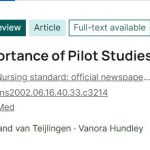Five pre-registration midwifery students were successful in their application to take part in a pilot project which will equip them with the knowledge, skills and competency to undertake examination of the newborn prior to qualification as a midwife. Midwives have always undertaken an initial examination of a baby soon after birth and the 24 hour ‘medical’ examination was traditionally undertaken by junior doctors or GP trainees. Following a change in doctor’s hours and a call for more holistic midwifery care, midwives began to take on the role of examining newborns following a period of rigorous training and education delivered through universities throughout the UK. Bournemouth University, for many years now, has been actively involved in educating midwives into this role, both locally and as far a field as Brighton and Gloucester. Currently the under-graduate midwifery curriculum does not offer this learning to its midwifery students although there is a strong push nationally for students to qualify with the skills.  Two universities have already embedded the skills into their three year curriculum and BU will begin to educate and train students with the necessary skills/competencies in 2014 with a brand new midwifery curriculum. In the meanwhile we are fast tracking five motivated students. The students (Bex, Jenna, Katie, Luzie and Jeanette (not in photograph) have to access all the post grad teaching and learning days (x5) which started last week. As well as undertaking an assessed presentation (6th day) with their qualified colleagues, they will have to undertake 30 newborn examinations under the watchful eye of their midwifery mentor who already has the qualification. The unit leader (myself) will undertake their final assessment in practice in conjunction with their mentor. If successful the students will be awarded with 20 CPD credits for use after qualification.
Two universities have already embedded the skills into their three year curriculum and BU will begin to educate and train students with the necessary skills/competencies in 2014 with a brand new midwifery curriculum. In the meanwhile we are fast tracking five motivated students. The students (Bex, Jenna, Katie, Luzie and Jeanette (not in photograph) have to access all the post grad teaching and learning days (x5) which started last week. As well as undertaking an assessed presentation (6th day) with their qualified colleagues, they will have to undertake 30 newborn examinations under the watchful eye of their midwifery mentor who already has the qualification. The unit leader (myself) will undertake their final assessment in practice in conjunction with their mentor. If successful the students will be awarded with 20 CPD credits for use after qualification.
Undertaking the pilot will be demanding for the students as they will still have to obtain their EU midwifery numbers, but it will not be at the expense of the pilot. Their under-grad training takes precedence.Furthermore a number of conditions were attached to the offers of a place: the pilot cannot be used as mitigation for any referred unit in their 3rd year and the credits cannot be used to top up their degree should they not achieve the requisite 120 credits for completion. All the students expressed strong commitment to obtaining the necessary skills and they have until September 2014 to complete. The pilot will pave the way for the new curriculum and will help with exposing any shortfalls in practice. I am immensely proud of the students for taking on this extra work. They have so many competing demands on their time and this will be just another. However it will provide the students with the skills to examine newborn babies when they are newly qualified midwives, which in turn will benefit women and their babies. If anybody is interested in knowing more about the pilot please contact me on: lcbutler@bournemouth.ac.uk











 Paper with 160,000 reads
Paper with 160,000 reads The Month in Research: April 2024
The Month in Research: April 2024 BU Professor has been invited to a series of plenary and invited lectures.
BU Professor has been invited to a series of plenary and invited lectures. Research reaching non-academic audiences
Research reaching non-academic audiences April’s Café Scientifique – Should we help machines understand and respond to our emotions?
April’s Café Scientifique – Should we help machines understand and respond to our emotions? Apply for up to £1,000 to deliver an event and take part in a national festival of public engagement with research
Apply for up to £1,000 to deliver an event and take part in a national festival of public engagement with research MSCA Postdoctoral Fellowships 2024
MSCA Postdoctoral Fellowships 2024 Horizon Europe News – December 2023
Horizon Europe News – December 2023